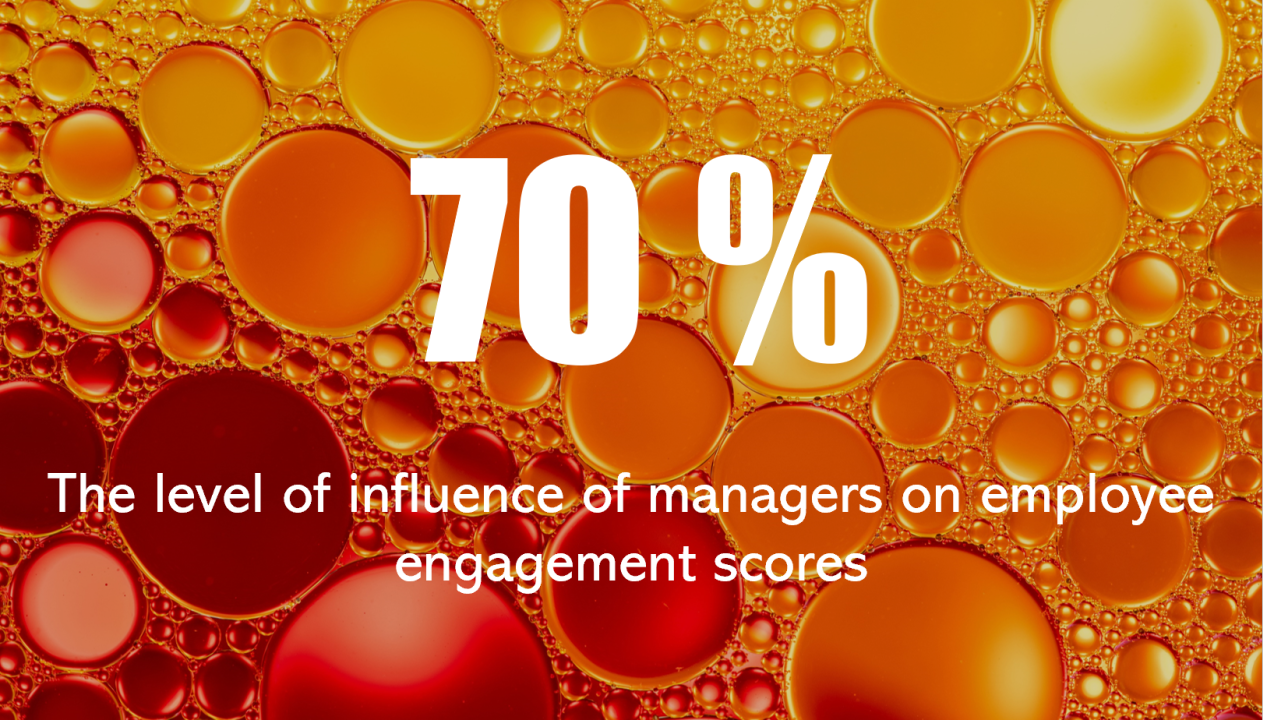Middle Management's Impact On Employee Development And Organizational Effectiveness

Table of Contents
The Role of Middle Management in Employee Development
Middle managers play a pivotal role in nurturing talent and fostering employee growth. Their actions directly influence employee engagement, retention, and overall performance. Effective middle management practices contribute significantly to a positive and productive work environment.
Mentoring and Coaching
Middle managers are often the first point of contact for employees seeking guidance and mentorship. Effective middle managers excel at:
- Providing regular feedback and constructive criticism: This includes both positive reinforcement and actionable suggestions for improvement, delivered in a timely and supportive manner. Regular one-on-one meetings are crucial for this aspect of middle management effectiveness.
- Identifying employee strengths and weaknesses: Through observation, performance reviews, and open communication, effective middle managers pinpoint areas for development and opportunities for advancement. This requires active listening and a genuine interest in each employee's career aspirations.
- Creating individualized development plans: These plans should be tailored to each employee's unique needs and goals, outlining specific steps and timelines for improvement. Regular check-ins ensure progress and allow for adjustments as needed.
- Facilitating access to training and development opportunities: Middle managers should actively promote and encourage employees to participate in relevant training programs, workshops, and conferences, helping them acquire new skills and expand their knowledge base.
- Championing employee growth and career progression within the organization: Effective middle managers actively advocate for their team members' advancement, identifying opportunities for promotion and seeking out internal development programs to support their growth.
Creating a Supportive and Developmental Work Environment
Cultivating a positive and supportive work environment is a cornerstone of middle management effectiveness. Key elements include:
- Open communication and transparency: Fostering open dialogue, providing regular updates, and ensuring employees feel comfortable expressing their concerns are crucial.
- Fostering a culture of collaboration and teamwork: Encouraging teamwork and knowledge sharing builds a stronger, more resilient team.
- Encouraging knowledge sharing and peer learning: Mentorship programs and opportunities for cross-training can significantly improve team skills and knowledge.
- Providing opportunities for skill development and advancement: Regularly assessing employee skills and providing opportunities for growth and development is critical for retention.
- Recognizing and rewarding employee achievements: Celebrating successes, both big and small, boosts morale and reinforces positive behavior.
Addressing Performance Issues Proactively
Effective middle managers address performance issues swiftly and constructively. This involves:
- Providing timely and specific feedback: Addressing performance concerns immediately prevents issues from escalating. Feedback should be clear, specific, and focused on behavior, not personality.
- Offering support and resources for improvement: Providing employees with the necessary tools, training, or mentorship to improve performance demonstrates support.
- Implementing performance improvement plans: These plans outline specific goals, timelines, and support systems to help employees meet expectations.
- Documenting performance consistently and fairly: Maintaining accurate records ensures fairness and provides evidence for future performance evaluations.
- Knowing when to escalate issues to senior management: Middle managers should know when they need to involve higher management to resolve performance issues effectively.
Middle Management's Contribution to Organizational Effectiveness
Beyond employee development, middle management plays a crucial role in driving organizational effectiveness and achieving strategic goals.
Driving Performance and Productivity
High-performing middle managers:
- Clearly communicate organizational goals and expectations: Ensuring everyone understands the vision and their role in achieving it is paramount.
- Effectively delegate tasks and responsibilities: Delegation empowers employees and improves team efficiency.
- Monitor progress and provide regular updates: Regular updates keep projects on track and identify potential issues early.
- Identify and remove obstacles to productivity: Proactive problem-solving ensures smooth workflow and maximized output.
- Foster a culture of accountability and high performance: Setting clear expectations and holding employees accountable fosters a culture of excellence.
Improving Communication and Collaboration
Strong middle management ensures seamless communication and collaboration throughout the organization:
- Information flows effectively between different levels of the organization: Facilitating smooth information flow prevents misunderstandings and delays.
- Teams collaborate effectively to achieve shared goals: Encouraging teamwork and open communication promotes collaboration.
- Feedback is actively sought and incorporated: Valuing employee input leads to better decision-making and improved processes.
- Conflicts are resolved efficiently and constructively: Effective conflict resolution prevents negativity and maintains team cohesion.
- Cross-departmental communication is streamlined: Facilitating communication across departments improves overall efficiency.
Promoting Innovation and Adaptability
Middle managers can significantly impact organizational innovation by:
- Encouraging creative problem-solving: Promoting a culture of innovation encourages employees to think outside the box.
- Implementing new technologies and processes: Embracing new technologies improves efficiency and enhances productivity.
- Adapting to changing market conditions: Agility and adaptability are crucial for success in dynamic markets.
- Fostering a culture of continuous improvement: Regularly evaluating processes and seeking ways to enhance them is key.
- Identifying and nurturing talent with innovative ideas: Recognizing and supporting innovative employees fosters a culture of creativity.
Conclusion
Middle management effectiveness is undeniably critical for fostering employee development and enhancing organizational effectiveness. By investing in training and development programs focused on leadership, communication, and mentorship skills, organizations can empower their middle managers to become catalysts for growth. Effective middle managers are not just managers; they are mentors, coaches, and drivers of organizational success. Prioritizing the development of your middle management team is a strategic investment that will yield significant returns in terms of improved employee engagement, increased productivity, and stronger overall organizational performance. Invest in your Middle Management Effectiveness today!

Featured Posts
-
 Brewers 9 Cubs 7 A Windy Wrigley Field Battle
Apr 23, 2025
Brewers 9 Cubs 7 A Windy Wrigley Field Battle
Apr 23, 2025 -
 Valeur Ajoutee Infotel Pourquoi Les Clients L Apprecient
Apr 23, 2025
Valeur Ajoutee Infotel Pourquoi Les Clients L Apprecient
Apr 23, 2025 -
 Historic Night For Yankees Aaron Judge Leads 9 Home Run Offensive Outburst
Apr 23, 2025
Historic Night For Yankees Aaron Judge Leads 9 Home Run Offensive Outburst
Apr 23, 2025 -
 Christian Yelich Makes Spring Training Return Following Back Surgery
Apr 23, 2025
Christian Yelich Makes Spring Training Return Following Back Surgery
Apr 23, 2025 -
 Yankees Smash Team Record With 9 Home Runs Judges 3 Lead The Way
Apr 23, 2025
Yankees Smash Team Record With 9 Home Runs Judges 3 Lead The Way
Apr 23, 2025
